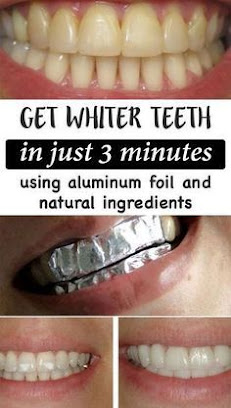SKIN CARE ADVICE THAT CAN REALLY HELP YOU
TEETH whitening lightens teeth and makes them appear brighter by helping to remove stains and discoloration.
IF your smile has become stained from tea and coffee, you may have considered getting your teeth whitened. But what is it and how is it done? Here's what you need to know.
What is teeth whitening and why do teeth become stained?
Teeth whitening lightens teeth and makes them appear brighter by helping to remove stains and discoloration.
The procedure is one of the most popular when it comes to cosmetic dentistry and most dentists perform some kind of tooth whitening.
Those looking to whiten their teeth can also use special “at home” kits or whitening toothpastes.
Teeth whitening is not a one-off procedure – and it will need to be repeated to maintain the same level of brightness.
The most common reasons for “yellow” or stained teeth include:
- Smoking
- Drinking coffee, tea, cola or red wine
- Not taking good care of your teeth
- Aging
How do you whiten teeth, what are the different methods and are there any risks?
There are many products and techniques that help whiten teeth.
One of the most popular techniques is laser whitening, or “power whitening”, where a bleaching product is painted onto teeth before a special light is shone on to the area to activate the product.
Other methods are done at home under the supervision of a dentist who provides specially made trays that are used with a bleaching gel.
At home methods often don’t contain enough whitening product to make a big difference – and they can be risky if not applied correctly.
Other DIY methods of brightening teeth, such as charcoal powder and special toothpastes are likely to only have a negligible impact – especially if teeth are particularly stained.
Teeth whitening should only be carried out by a registered dentist – having teeth whitened at a unqualified beauty salon can carry risks and they are breaking the law.
Are there any alternatives to whitening?
Dr Reena Wadia of RW Perio told Fabulous Online: "Before whitening, it might be worth trying out an advanced polishing treatment such as Airflow. This aims to remove stains that traditional scaling and polishing may not remove.
"It uses a combination of flavoured fine powder particles, compressed air and water and patients do not experience any sensitivity or discomfort.
"Lots of my patients have felt this gives enough of an improvement and that they don't require whitening afterwards - however, if you do whiten your teeth, the advanced polishing treatment will improve the results you get. It's a win, win!"
Are there any side effects when having teeth whitened?
Some people may experience side effects after having their teeth whitened.
These include:
- Sensitivity
- Uncomfortable gums
- Cold sensations
- Sore throat
These side effects should be temporary and disappear within a few days.
source : https://www.thesun.co.uk/







Comments
Post a Comment